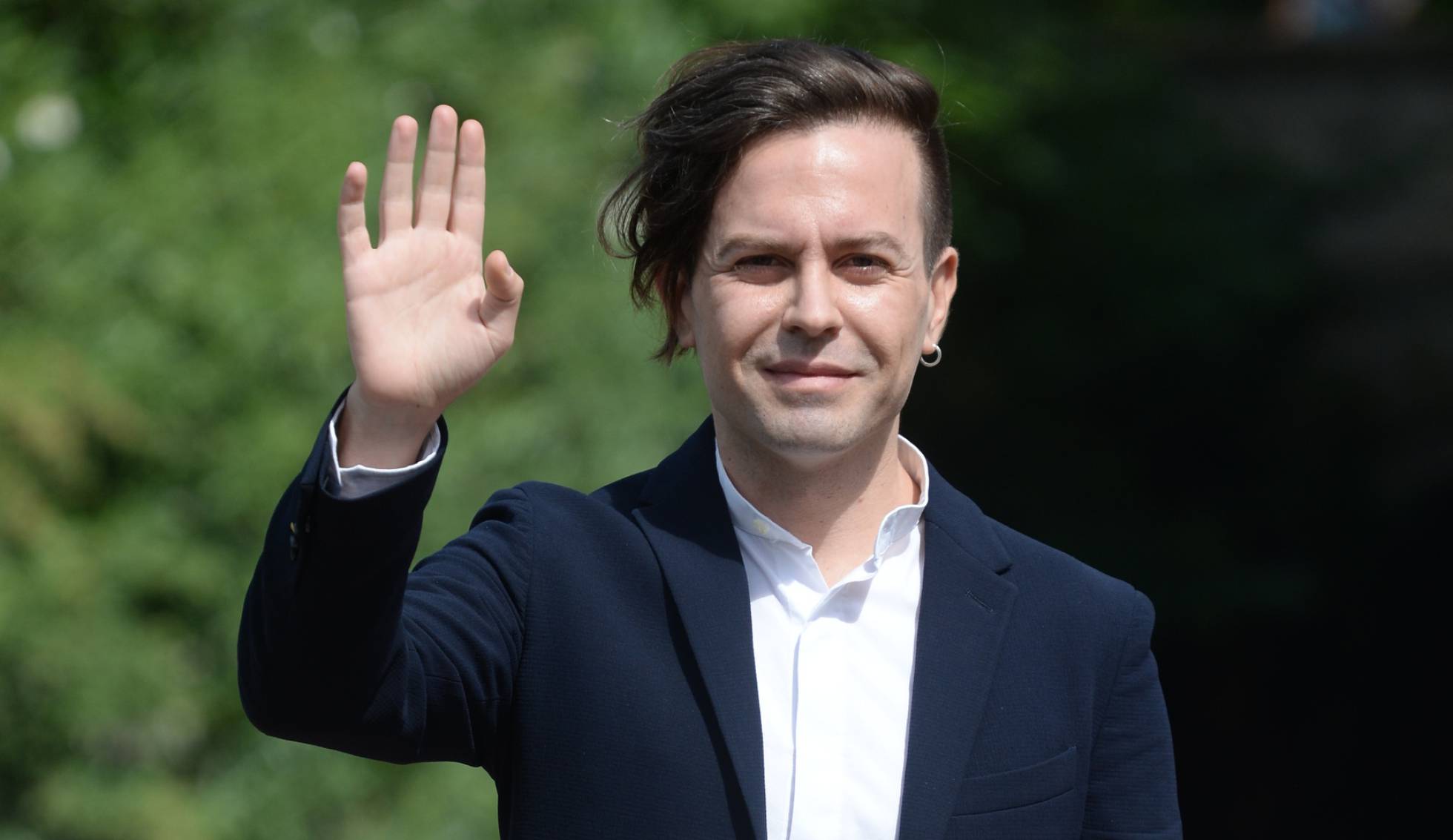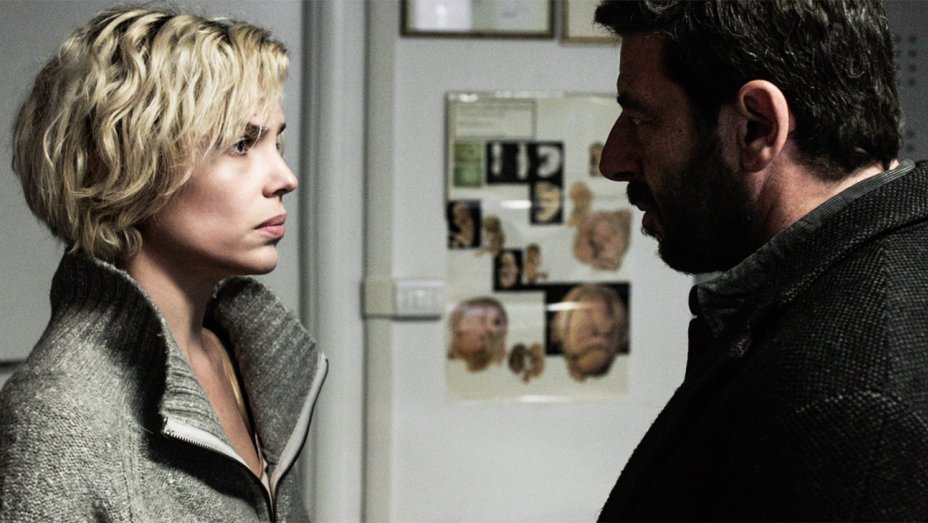
Acclaimed Italian filmmaker Sebastiano Riso has made several short films, music videos, and two feature films. His first feature film, 2014’s Darker than Midnight, was screened at the Cannes Film Festival and the second, 2017’s A Family, opened at last year’s Venice International Film Festival. The former portrayed the rise of the drag queen Fuxia, and the latter explored the underbelly of surrogacy and adoption policies that homosexual couples in Italy have to traverse. Following the wide release of A Family, he was physically assaulted at his home on account of his sexuality and work. The traumatic event has only strengthened his quest to make films on subjects close to his heart. We met with the resilient director at the recently concluded Habitat International Film Festival , where A Family was screened, and discussed cinema, Italian culture and politics, and the rise of both social activism and solidarity within the film industry.
How did you embark on a career in filmmaking? How’s the journey been?
There is no definite answer to how one becomes a filmmaker. It is a combination of events. It has a lot do with my background because my father is a cinephile. He would bring home movies, and we would spend hours discussing those. During high school, I was very politically active, particularly about equal rights. For me, society was the most important aspect of life. After graduating from school, I felt cinema gave people the opportunity to do something that is very deep and true to themselves. Cinema gives audiences an experience like no other; it is a journey where they can talk about themselves. So I started studying cinema at university, and paid for my college by working as an assistant director. Gradually, as I became more comfortable with the work, I wrote my first script, which translated into my first feature film, Darker Than Midnight. On the back of its success, for it was screened at Cannes, starting my second feature film project was far easier. In a nutshell, my background, personal motivations, and the right opportunity to express myself brought me to where I am.
Sexuality has been a running theme in both of your feature films. What drove you to the conclusion that art and cinema would be the best medium to engage with the social aspects of sexuality?
For me, the opportunity to talk about the disease of my country — the privilege enjoyed by straight, white, rich, Catholic men — to talk about rights and freedom in my films is very important. I don’t think one needs to find the most incredible story. I think for every story, the real people around you, such as your family or neighbours, can give you the right inspiration to talk about society at large. Cinema, in that sense, gives people the opportunity to understand what’s happening.

A still from ‘A Family’; Image: hollywoodreporter.com
How did Una Famiglia (A Family) come about?
I read an article that talked about how a couple made and sold eleven babies in fifteen years. It was incredible and I couldn’t believe it happened in Italy. Then I remembered something that once happened to my father, who is a doctor. He had a patient who would come to him with a baby every few months, so he asked her where the babies came from. She just smiled and said that they came from her little belly. This made my father very suspicious, and he began to talk about this kind of market with me when I was a young boy. While this memory was etched into the back of my mind, the article brought the memory back, and I began to think deeply about the subject. How is it possible? Why does it happen? The effects may be visible in people’s behaviour but the responsibility for such a phenomenon lies with the government. For instance, it is very difficult to adopt a child in Italy if you are not straight, white, Christian, and rich. Therefore, others have to find different solutions, such as going abroad to adopt or buying a baby on the black market.
The laws we have facilitate the free existence of every member of our diverse populace. Italian culture, however, is monopolised by the bourgeoisie who are primarily white, straight, and Catholic. Being outside these specific criteria entails being disadvantaged. I like to talk about people who live outside of the privileged community. I grew up with the opinion that our differences are an opportunity, and this belief has led me to believe that travelling is one of the most beautiful things we can do. However, travelling does not necessarily mean flying to a different country; travelling could also mean going to a movie theatre and enjoying the journey that a particular story, which is not a part of your life, takes you on. I truly believe in diversity. During Fascism, for instance, diversity did not exist. But the real world is a mix of cultures, which is amazing.
To what extent do you think it is possible or acceptable to tell the story of a different culture?
It is very tricky and risky. A few years ago Woody Allen made a film about Rome that was full of clichés. So I think one should talk about what they know; I would like to talk about what I know. Of course, you can take inspiration from different places, be inspired to create good art, but there is a risk to it because one can easily be a bit arrogant while talking about a culture that is not theirs.
How do you think cinema has evolved in terms of dealing with sensitive subjects?
Italian cinema, at present, is witnessing a new spring because many new directors — men and women, most about thirty years of age — are able to work on independent projects with different perspectives, while fostering a strong culture of collaboration. This is not easy because generally the system within the film industry turns people against each other for the sake of competition. Therefore, what is happening now is very unique because I receive a great deal of support from my colleagues who belong to my generation. For instance, after I was attacked last year, the only solidarity I received was from filmmakers of my generation. There was not a word of compassion from the older, bigger names; such a scenario is pitiable. I met Ken Loach at a film festival and he cried upon hearing my story. It is not an attack on an individual, it is an attack on a community. What made me feel worse through that horrible experience was the feeling of being alone.
How did you deal with the trauma of the attack?
The first month was horrible because it induced sleeplessness. I had never experienced violence before. During the incident, I assumed they were trying to steal my bag. But after they left, I couldn’t understand what it was all about. A friend who was with me at the time, some time after the incident, told me that they hurled homophobic slurs and abuses at me and my work as they were leaving. I have no recollection of this because I was completely shaken; I felt as though I was lost in the middle of a sea. When I learnt that the attack was because of my movie, I thought, ‘Where am I? Am I living in a fascist regime?’ That realisation was a huge shock because I grew up believing that communities thrive in a healthy society. The world of cinema is a protected one; those who work in cinema live in their own little bubble. So, to get attacked is shocking. Filmmakers can fight with co-workers and have disagreements but to face violence for one’s movie and for one’s ideas is difficult to comprehend. It happened during the Fascist regime, so what does that imply? Is Fascism back? What do they want? Their idea of cinema is circumscribed to happy people and happy endings, cinema in which life is perfect and there is no room for dissent. I, however, will never succumb to such intimidation and make the kind of movies they want. My taste in cinema will not change, not for this reason. If I take a different direction, it will be my own decision, not because somebody pushed me into it.
At the recent David di Donatello awards (Italy’s most prestigious film awards), a journalist asked me if I had anything to say about the silence of my fellow filmmakers on the subject of my attack. I told him that I did not have anything to say because it made me feel very lonely. There is something incredibly selfish about this world and I really don’t understand how one can remain silent after such an incident.
Do you think it has become a trend to discuss one particular issue? For instance, three–four years ago there was an uproar about the Oscars being white and last year, after the Harvey Weinstein scandal, there has been intense discussion about sexual harassment with the Me Too and Time’s Up movements. Both discussions have been, in spirit, about greater representation but the discussion has not yet encompassed, in a significant fashion, the marginalisation faced by the LGBTQ+ community.
I absolutely agree that it has become a trend to talk about Me Too, Time’s Up, and race in Hollywood. The media only discusses what is ‘cool’ but what about the others? Asia Argento, the Italian actress who was one of the first women to speak up against Weinstein, has been ostracised in her country. The Italian media has blamed her and labelled her ‘a bitch’ and ‘a slut’. The cinematic community in Italy does not support her either, believing that she shouldn’t complain about him after having slept with him. I was shocked! This machismo is really hard to break. Of course she felt scared, fragile, and powerless, but she needed time to say something against him because she was a little actress against, perhaps, the most powerful movie producer in the world. She needed solidarity, but instead she had to contend with such remarks as ‘shame on you’, which is horrible. Just horrible.

About trending news, I think it is a proof that imperialism still exists. If the US media decides that this year they will talk about a certain social issue, the rest of the world will follow suit just like a parrot would. There is no clear, independent, and different point of view. Of course, we need to have more female directors and we need more people of colour both in front of and behind the camera. They have faced years of oppression and prejudice, and their demand for equality should not become a trending subject because everybody cares about what’s cool. They should care because the quality of cinema suffers. Cinema is not a trend, it is not about being cool; cinema is about the heart.
Riso’s next film is set in the Italy of the 90s, and is about a phenomenon that culturally influenced the mind of contemporary Italians: the ill-cultured, masculine era of Berlusconi.
Disclaimer: The opinions expressed are those of the interviewee, and do not necessarily reflect those of DSSC & its affiliates.
Featured Image Courtesy: informeraxen.es

